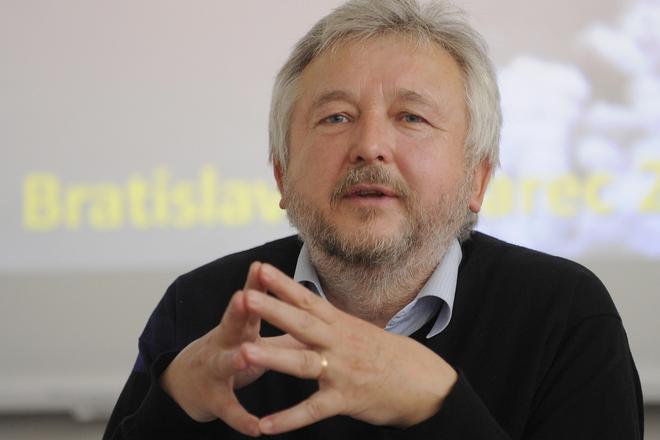Slovak scientists and world-renowned water management expert Michal Kravčík will attend a series of lectures and meetings about water solutions in the United Kingdom, based on an invitation of The Flow Water Partnership organisation.
The solutions were created in Slovakia and serve as an inspiration to address the water, climate and food crises in the UK, the Hnonline.sk website reported.
Kravčík gave his first lecture in the House of Lords, the second chamber of UK Parliament, on June 18. It was held under the auspices of Lord Stone of Blackheath, who is actively dealing with the climate change agenda.
Return after 20 years
Kravčík held the lecture in London after 20 years. He received the EU–US Democracy and Civil Society Award on May 28, 1998, bestowed by then-US president Bill Clinton and then-British PM Tony Blair.
The award was granted to his non-governmental organisation Ľudia a Voda (People and Water) on the occasion of the 50th anniversary of the Marshall Plan for Europe, for a successful campaign to stop the construction of the Tichý Potok dam by offering a cheaper and more efficient alternative.
Apart from Kravčík, Lord Stone of Blackheath invited Rajendra Singh, the laureate of 2015 Stockholm Water Prize. He is known as the “waterman of India” since he has revived rivers in Rajasthan, India.
New school for water solutions
Kravčík will hold more lectures at the Global Water School, which is being established by The Flow Partnership and its partners in Dartington, West England. The aim is to mobilise people and communities worldwide to solve the water and climate problems of the dried regions across the globe, Hnonline.sk reported.
The school has the ambition of making available proven, local wisdom to address floods and droughts for communities to take action in their regions; provide a scientific understanding of the long term impact of natural catchment measures for their regions; and provide step by step guidance on raising awareness, galvanising their communities and implementing necessary measures to protect and rejuvenate local catchments, according to The Flow Partnership’s website.


 Michal Kravčík (source: TASR)
Michal Kravčík (source: TASR)